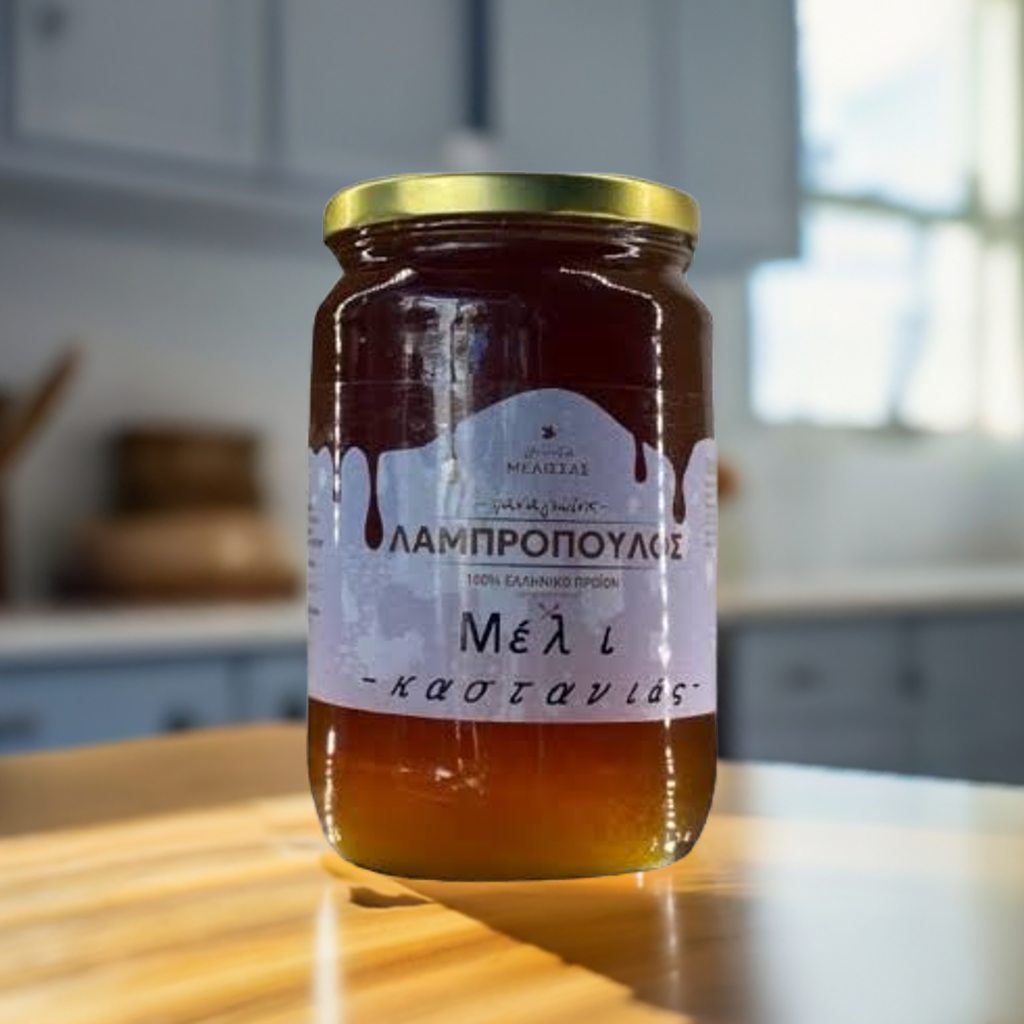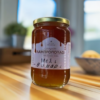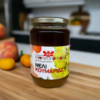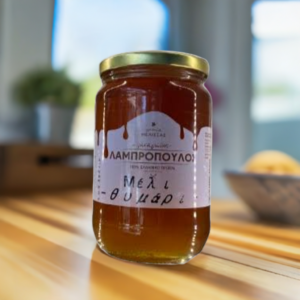The chestnut honey It is produced from the flowers and nectar of chestnut trees that thrive in the mountains of Greece. It has a dark caramel color and a rich aroma of nuts and herbs.
It is distinguished by its intense, full flavor with a slightly bitter aftertaste and its high nutritional value. It is rich in minerals, tannins and antioxidants, making it an excellent choice for strengthening the body.
Thanks to its tonic properties, chestnut honey is considered ideal for athletes, people with intense daily lives, or those who need support during periods of recovery.
100% natural Greek chestnut honey
No additives, no preservatives.
What is chestnut honey?
It is produced from the flowers and nectar of the chestnut tree. It is characterized by its dark color, rich flavor and high nutritional value.
Quality characteristics
Characteristics of Chestnut Honey
- Taste: Chestnut Honey is distinguished by its strong and slightly bitter taste, which remains on the palate for a long time, offering a unique and lasting taste experience.
- Colour: Presents an intense and dark brown color, reflecting the rich composition and its particular origin from the chestnut tree.
- Perfume: It has an intense aroma, which is characteristic of this honey.
- Crystallization: Chestnut Honey crystallizes slowly, usually after 1 to 2 years, maintaining its liquid form for a long time due to its low glucose content.
What does chestnut honey combine with?
Chestnut honey, with its characteristic flavor and dark color, offers many combination possibilities. Its rich flavor and high sugar content make it ideal for many uses.
Ways to use chestnut honey:
- Cheeses: Chestnut honey pairs wonderfully with cheeses such as gruyere, feta, Roquefort and goat cheese. It creates a wonderful combination of sweet and savory.
- Fruits: It combines beautifully with fruits such as apples, pears, bananas and nuts.
- Yoghurt: It adds a hint of sweetness and depth of flavor to yogurt.
- Tea: Chestnut honey is ideal for sweetening your tea, especially herbal ones.
- Alcoholic beverages: It can be used to make cocktails or sweeten whiskey.
- Sauces: It adds a unique flavor to sauces for meat or vegetables.
- Baking: It can be used in marinades for meat, in sauces for roasts or as a glaze for roasted vegetables.
- Doughs: Adds a natural sweetness and moisture to bread or pastry doughs.
Recipes you can try:
- Toast with cheese and honey: Spread a slice of bread with cream cheese or feta cheese and add a spoonful of chestnut honey.
- Yogurt with honey and nuts: A healthy and tasty breakfast or snack.
- Crepes with honey and fruit: Serve your crepes with chestnut honey and fresh seasonal fruit.
- Marinade for chicken: Combine chestnut honey with mustard, garlic and herbs for a delicious marinade.
- Roast Sauce: Mix chestnut honey with soy sauce, vinegar and a little red pepper for a bittersweet sauce.
Why choose chestnut honey?
- Natural sweetness: Chestnut honey is a natural sweetener with a low glycemic index.
- Rich in nutrients: It contains vitamins, minerals and antioxidants.
- Unique taste: The taste of chestnut honey is more bitter and less sweet than other types of honey, offering a unique experience.
Advice: To enjoy all the flavors of chestnut honey, try it at room temperature.
Frequent questions
Does chestnut honey have a strong taste?
Yes, it has a rich, full flavor with a slightly bitter aftertaste — a trait that makes it beloved by lovers of strong flavors.
Does chestnut honey crystallize?
Thanks to its natural composition, it crystallizes slowly compared to other honeys.
How do I store it?
In a cool and shady place. Avoid exposure to sunlight or high temperatures.










Reviews
There are no reviews yet.